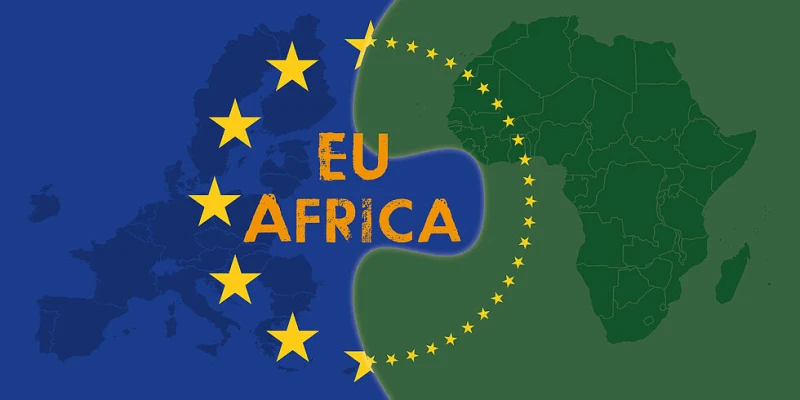Viewpoint: While African nations embrace GM and gene-edited crops to address climate change challenges, EU lags further behind, even as food prices soar
Viewpoint: While African nations embrace GM and gene-edited crops to address climate change challenges, EU lags further behind, even as food prices soar


While some richer nations dither over how to deal [with biotech farming innovations], scientists in lower and middle income countries are seizing the opportunity to give agriculture a targeted genomic reboot. “It is a great testament to their ingenuity, combined with the acceptance that something needs to be done quickly, that these early developers of gene-editing are not in the resource-rich [global] north,” says Johnathan Napier, a plant biotechnologist at the UK-based agricultural institution Rothamsted Research. In a world where food security can never be taken for granted, that sense of urgency needs to spread.
EU ministers recognise that treating all genetic technology in the same restrictive way is outdated and voted earlier this month to change the rules, but green-lighting PBOs faces opposition from consumer and environmental advocacy groups, as well as the organic food lobby. All 27 member states would need to approve a wide-ranging reset covering research, field trials, patents and food labelling — a tall order.
Refining and expanding this technology seems a sensible insurance policy in uncertain times. Even in well-fed Europe, economists talk about heatflation, the spectre of rising food prices as heatwaves and drought dent supply, increase spoilage and reduce nutritional value.
This is an excerpt. Read the original post here

 | Videos | More... |

Video: Nuclear energy will destroy us? Global warming is an existential threat? Chemicals are massacring bees? Donate to the Green Industrial Complex!
 | Bees & Pollinators | More... |

GLP podcast: Science journalism is a mess. Here’s how to fix it

Mosquito massacre: Can we safely tackle malaria with a CRISPR gene drive?

Are we facing an ‘Insect Apocalypse’ caused by ‘intensive, industrial’ farming and agricultural chemicals? The media say yes; Science says ‘no’
 | Infographics | More... |

Infographic: Global regulatory and health research agencies on whether glyphosate causes cancer
 | GMO FAQs | More... |

Why is there controversy over GMO foods but not GMO drugs?

How are GMOs labeled around the world?

How does genetic engineering differ from conventional breeding?
 | GLP Profiles | More... |

Alex Jones: Right-wing conspiracy theorist stokes fear of GMOs, pesticides to sell ‘health supplements’




 Viewpoint — Fact checking MAHA mythmakers: How wellness influencers and RFK, Jr. undermine American science and health
Viewpoint — Fact checking MAHA mythmakers: How wellness influencers and RFK, Jr. undermine American science and health Viewpoint: Video — Big Solar is gobbling up productive agricultural land and hurting farmers yet providing little energy or sustainabilty gains
Viewpoint: Video — Big Solar is gobbling up productive agricultural land and hurting farmers yet providing little energy or sustainabilty gains Fighting deforestation with CO2: Biotechnology breakthrough creates sustainable palm oil alternative for cosmetics
Fighting deforestation with CO2: Biotechnology breakthrough creates sustainable palm oil alternative for cosmetics Trust issues: What happens when therapists use ChatGPT?
Trust issues: What happens when therapists use ChatGPT? 30-year-old tomato line shows genetic resistance to devastating virus
30-year-old tomato line shows genetic resistance to devastating virus California, Washington, Oregon forge immunization alliance to safeguard vaccine access against federal undermining
California, Washington, Oregon forge immunization alliance to safeguard vaccine access against federal undermining The free-range chicken dilemma: Better for birds, but with substantial costs
The free-range chicken dilemma: Better for birds, but with substantial costs ‘You have to treat the brain first’: Rethinking chronic pain with Sanjay Gupta
‘You have to treat the brain first’: Rethinking chronic pain with Sanjay Gupta
